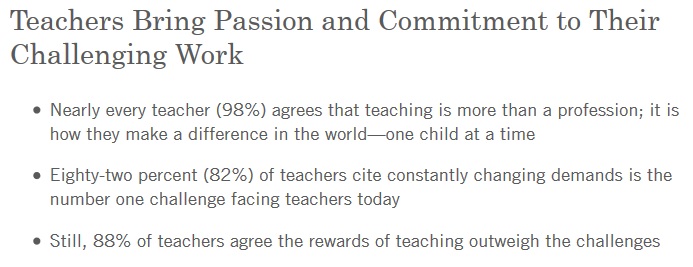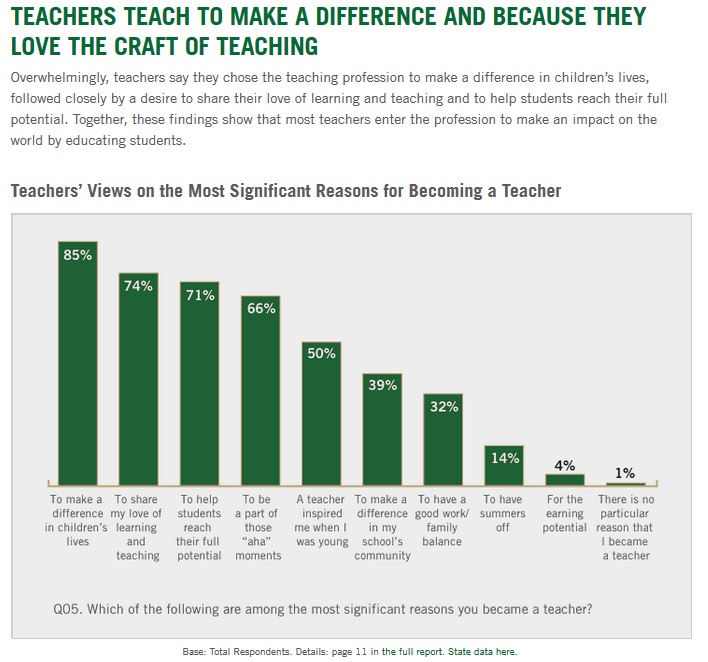I think the title says it all, but in case it does not:
- Is being a math teacher gratifying?
- If yes, what is gratifying in being a math teacher? (If not, why...)
- Does the feeling lasts, or perhaps fades or blossoms with age?
- What events that happened to you as a teacher were most gratifying?
The above questions are just suggestions, what I'm looking for is opinions or testimonies that could inspire. For example, one could use it during training new instructors, or explaining to a new grad student some benefits of teaching. The only requirement is self-containment, that is, the posts should include any context that is necessary to understand why it is/was gratifying for you.
I feel this is a borderline off-topic and should be made at least CW. On the other hand, there's no better place to gather such stories but here. I guess it will be of substantial help to anyone who needs to hear why being a teacher is great and worth its sweat (e.g. prospective new teachers or current teachers feeling down at the moment).
Edit:
If the question is too broad for you, you could always try sharing the moment that was most gratifying in your career as a mathematics teacher. Relevant meta post is here.
As for the scope, I'm mainly interested in university-level education. However, illuminating examples from high school or even elementary school are also welcome (especially if they regard gifted students during some math circles, etc.).


